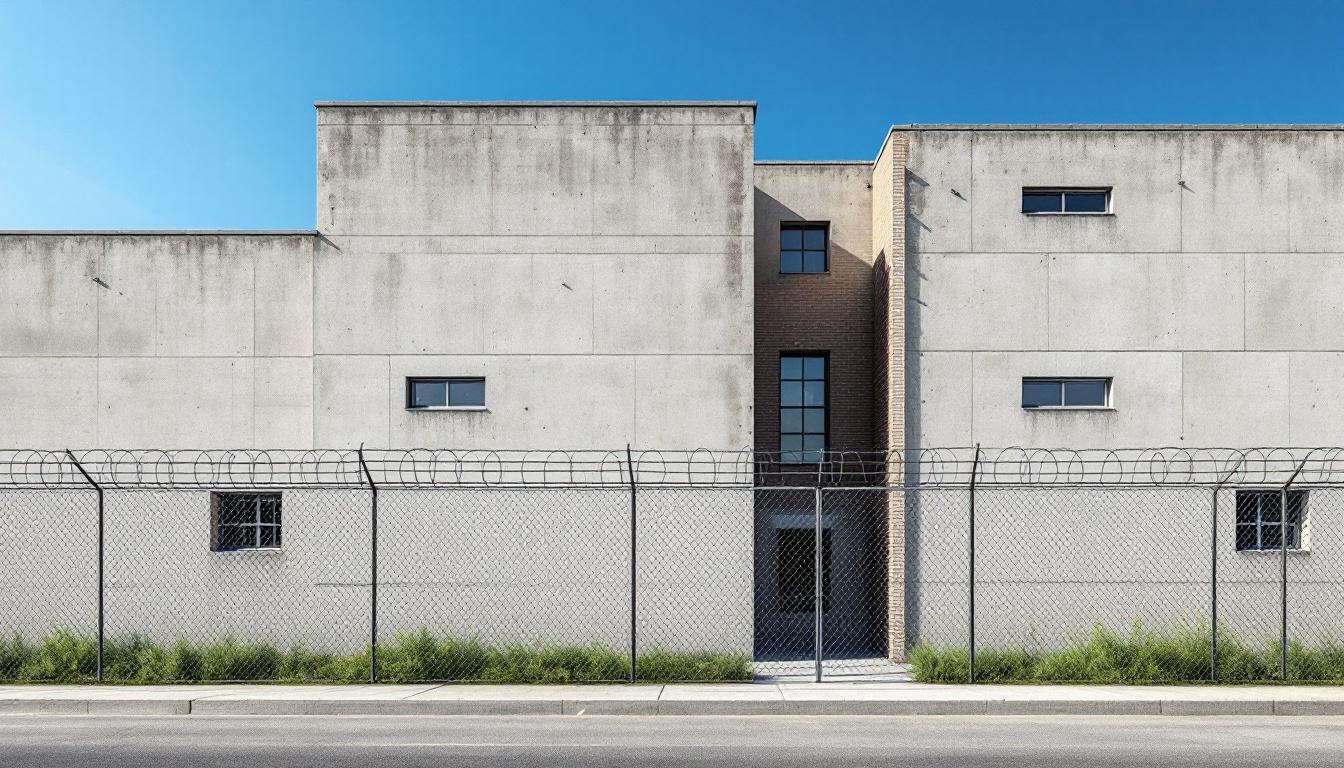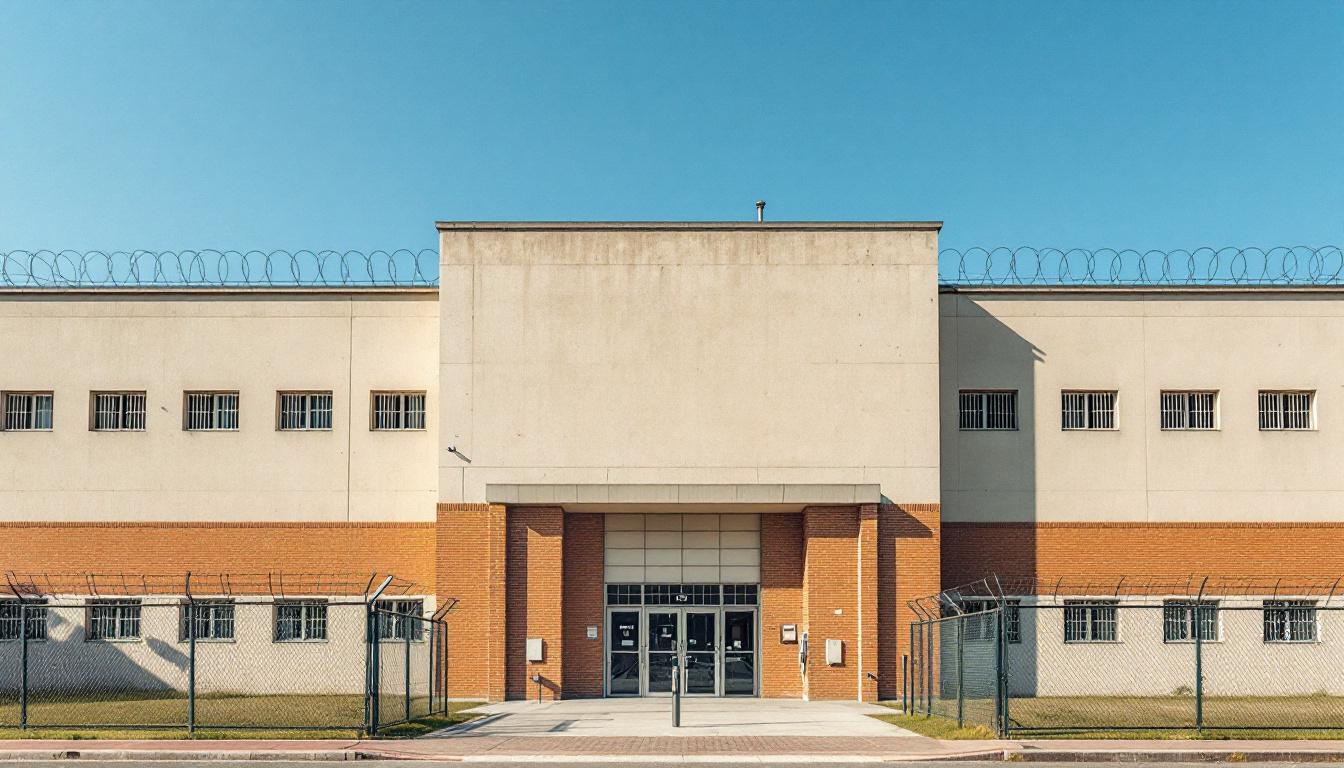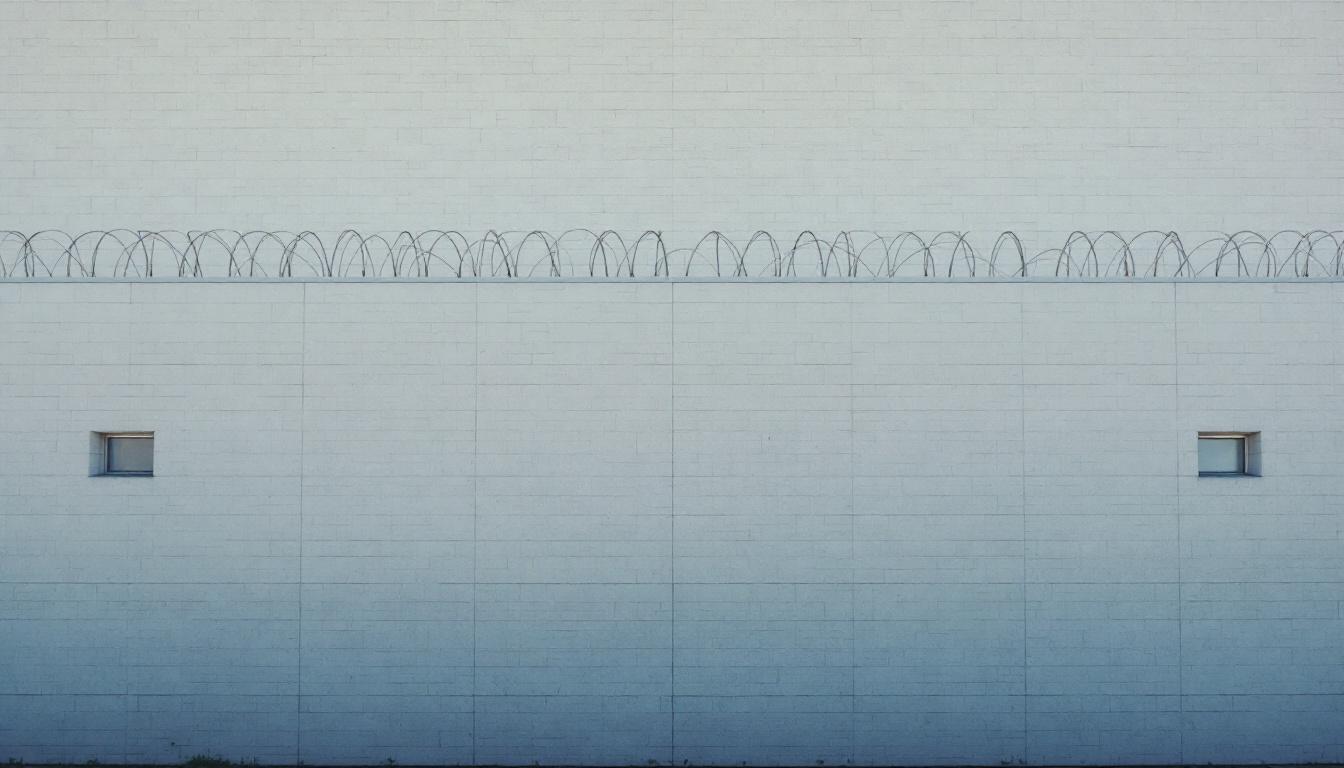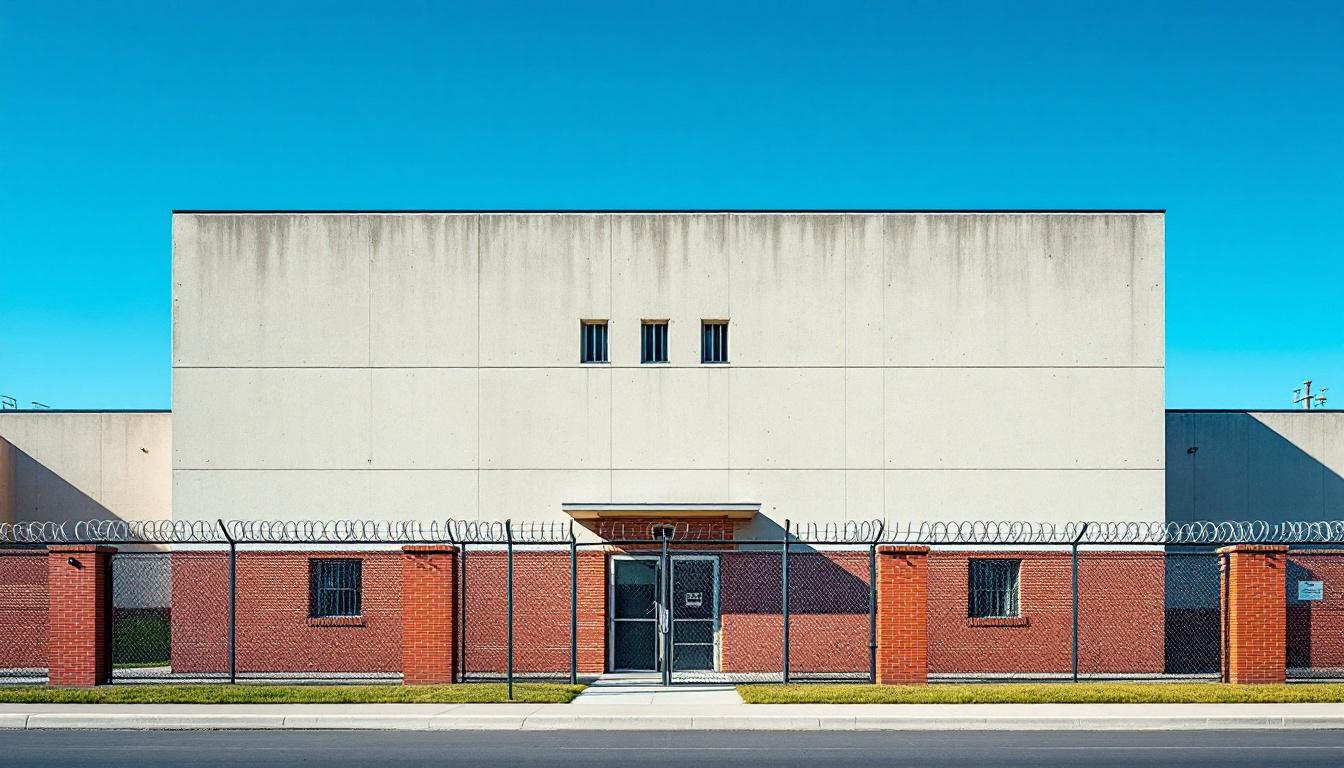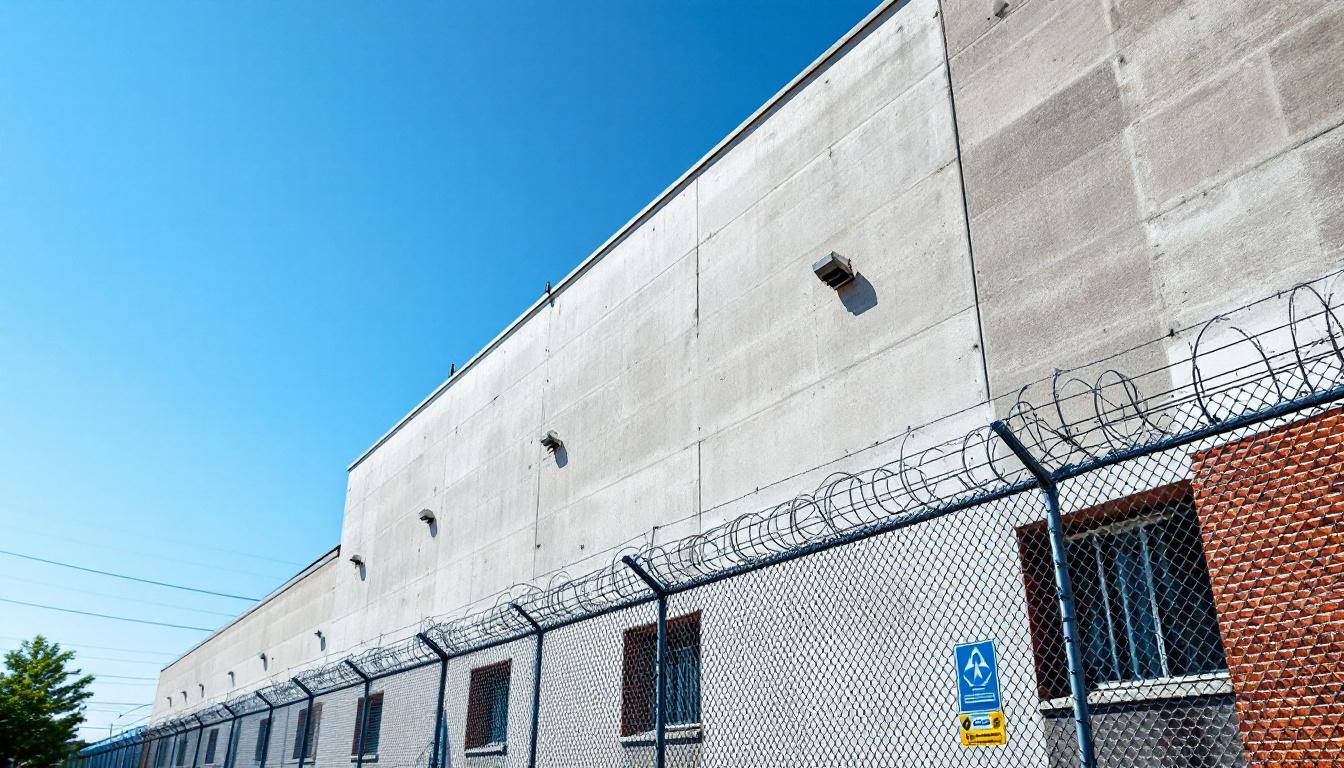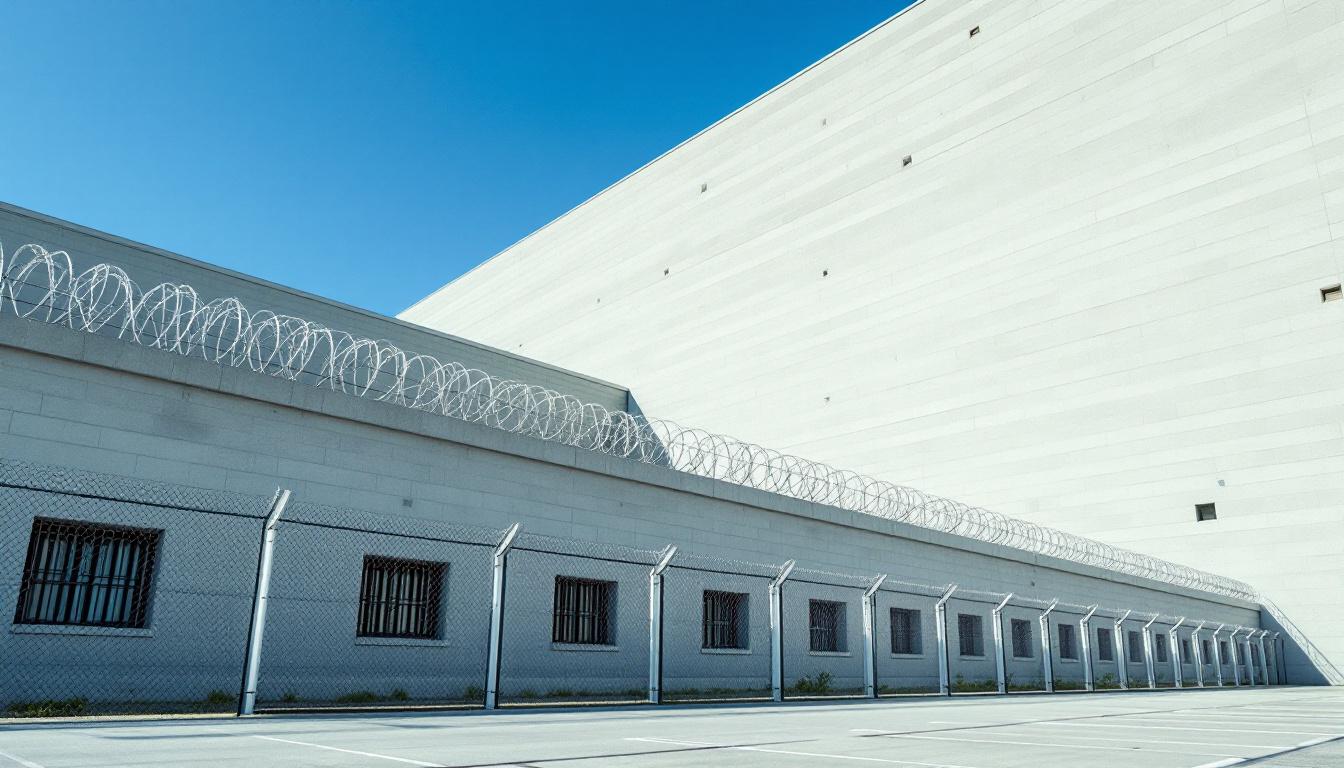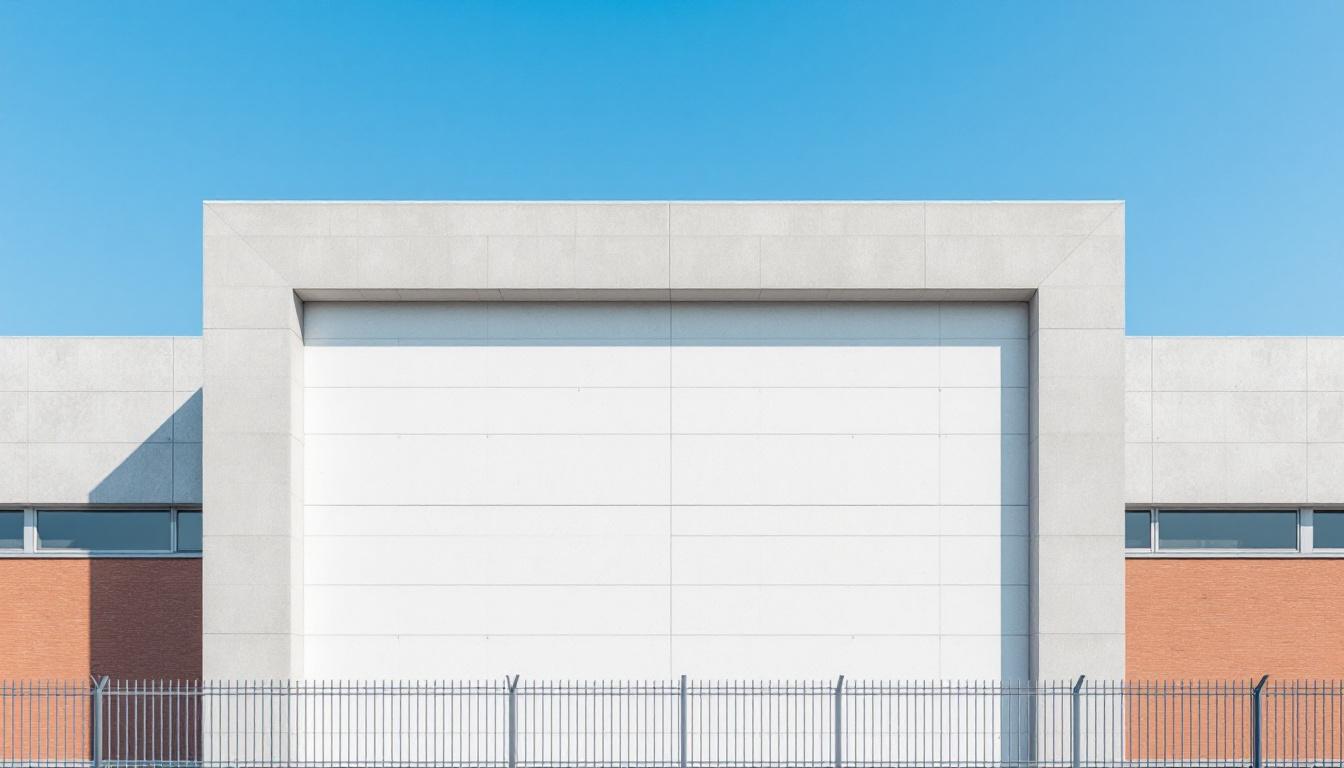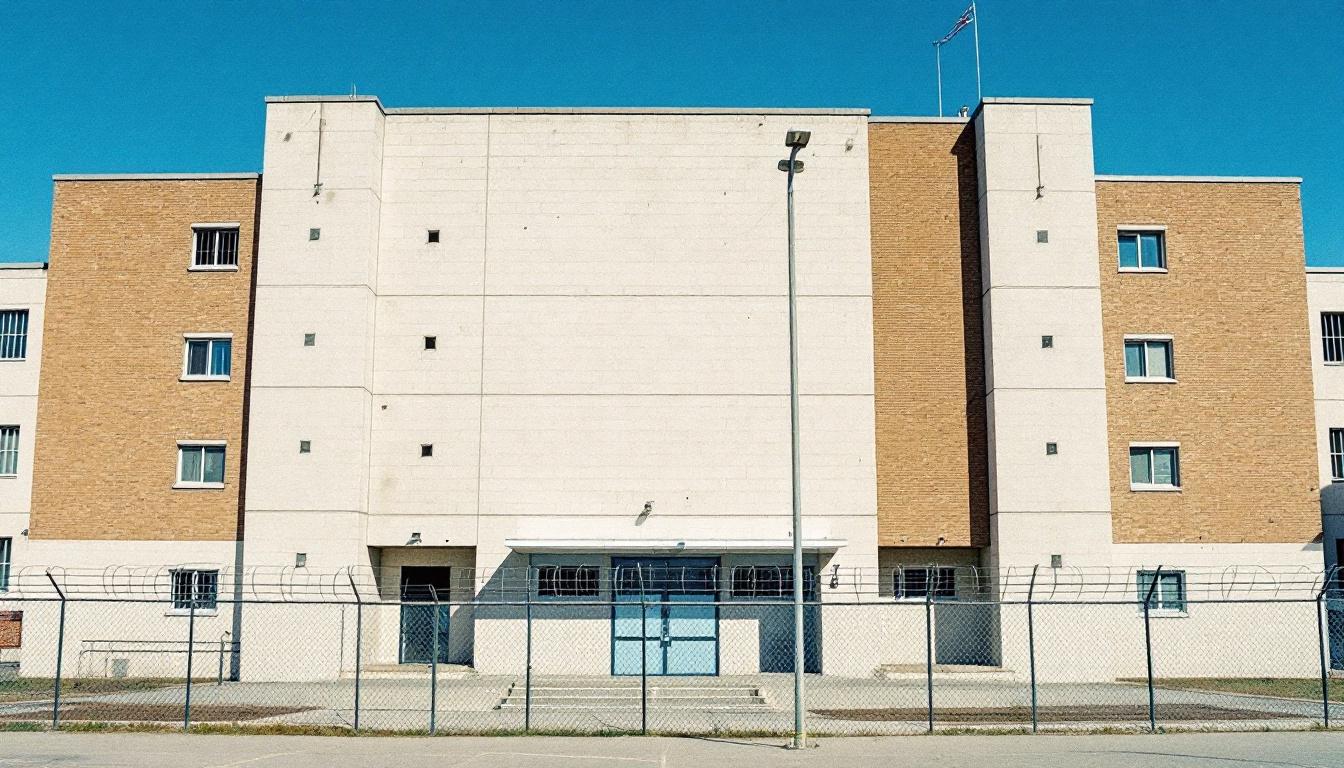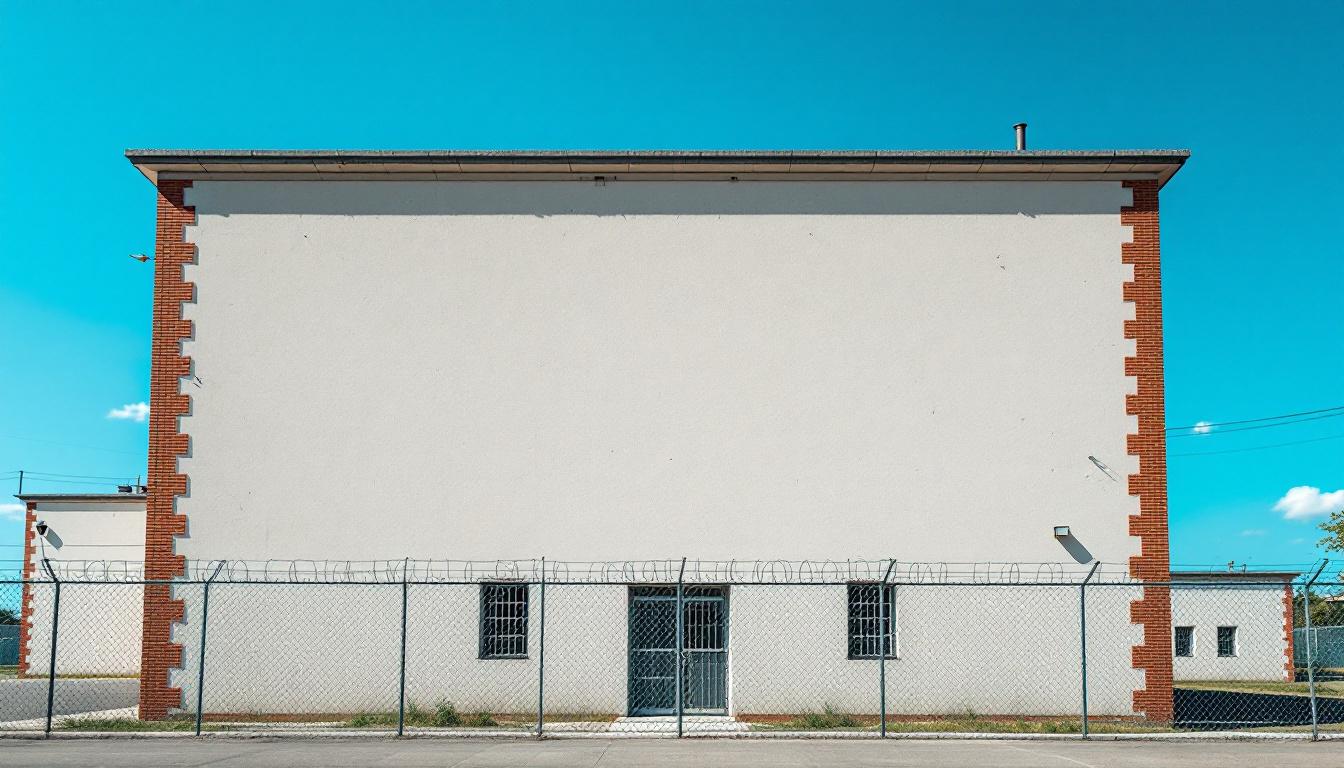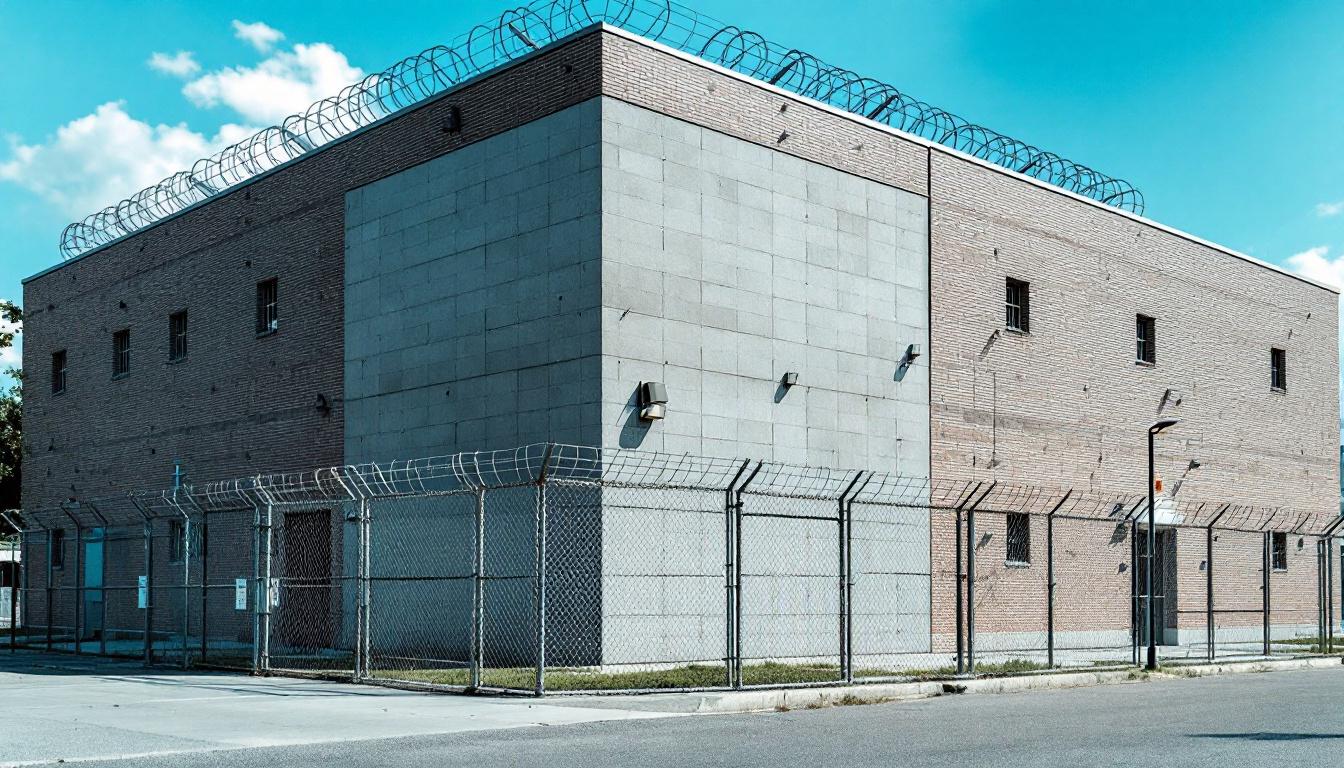
Quick Navigation
How to contact an inmate at Cumberland County Sheriff’s Department
This comprehensive guide will walk you through how to connect with an inmate at Cumberland County Sheriff’s Department. Follow the steps below to find an inmate and send letters and photos:
- Search for the inmate using our search tool below
- Create your account or log in to Penmate
- Write your message (up to 6,000 characters)
- Send instantly - inmates receive printed copies daily
Find an Inmate
Search for an inmate to start communicating today
Tip: You can search by first name, last name, or inmate ID number
To contact a person at Cumberland County Sheriff’s Department start by searching for the person on the official facility website. Perform a search by following these steps:
- Step 1: Enter their first name and last name into the search form and click "Search"
- Step 2: Locate their inmate record
- Step 3: Write down their Inmate ID and any housing information provided
Important! Be sure to enter the person's full name. Nicknames should not be used.
How to Send Messages to Inmates

You can use your phone or computer to send emails, letters, and photos to an inmate. Messages are sent electronically to inmate tablets or kiosks at the facility. If you would like to send a message, start by searching for an inmate at Cumberland County Sheriff’s Department.
Sending Photos and Postcards

A great way to send love and support to a loved one at Cumberland County Sheriff’s Department is to send photos and postcards. It only takes a few minutes to send photos from your phone and it makes a huge difference. You can also mail postcards with words of support and inspiration, or design your own postcard for special moments like birthdays and holidays.
Important! Be sure not to send any explicit photos or they may not be approved by the facility. You can also use a photo printing app like Penmate to make sure your photos are printed at the correct size (4x6 or 3x5) and are mailed according to the rules and regulations of Cumberland County Sheriff’s Department.
Frequently asked questions about Cumberland County Sheriff’s Department
-
How long does it take to deliver a message?
If you're sending an email message your letter is usually delivered within 24-48 hours. For messages sent via mail you should expect delivery within 3-7 days. All messages will need be approved by Cumberland County Sheriff’s Department.
-
How much does it cost to send a message to Cumberland County Sheriff’s Department?
You can send a message free using your phone or mail a message via USPS for the price of a $0.60 stamp and envelope. You can also purchase credits or e-stamps from services starting at $1.99.
-
What services can I use to contact an inmate at Cumberland County Sheriff’s Department?
Penmate
You can use Penmate to send letters and photos to an inmate from your phone. It's an easy way to stay in touch during your loved one's incarceration. Use the inmate locator to find an inmate's location and contact information, then you can send messages within a few minutes.
Securus messaging
Securus may be another option for communicating with an inmate at Cumberland County Sheriff’s Department. You can create a friends and family account and purchase credits to send messages. All messages will be reviewed and must be approved by the facility.
JPay
Some county jails and state prisons may support sending messages with JPay. You must register an account with the system, find your loved one, and purchase stamps to send messages. For some locations you can also attach photos.
Smart Jail Mail
You may also check if Smart Jail Mail is available at Cumberland County Sheriff’s Department. Smart Jail Mail is operated by Smart Communications and has contracted with some state and county jails. After purchasing credits, your messages and photos are sent to the facility, printed out, and then handed out to your loved one.
-
What is the mailing address of Cumberland County Sheriff’s Department?
Mailing address:
Cumberland County Sheriff’s Department
90 Justice Center Dr
Crossville, TN 38555
Phone: (931) 484-6176 -
What are the visiting hours at Cumberland County Sheriff’s Department?
Visiting hours at Cumberland County Sheriff’s Department vary by housing unit and security level. Generally, visits are scheduled on weekends and holidays, with some facilities offering weekday visits. Contact the facility directly at (931) 484-6176 or check their website for the current visiting schedule. Visits typically last 30-60 minutes and must be scheduled in advance.
-
What items are prohibited when sending mail to Cumberland County Sheriff’s Department?
Prohibited items typically include: cash, personal checks, stamps, stickers, glitter, glue, tape, staples, paperclips, polaroid photos, musical or blank greeting cards, hardcover books, magazines with staples, and any items containing metal or electronics. Only send letters on plain white paper with blue or black ink. Photos must be printed on regular photo paper (no Polaroids). Always check with Cumberland County Sheriff’s Department for their specific mail policies.
-
How do I send money to an inmate at Cumberland County Sheriff’s Department?
You can send money to an inmate at Cumberland County Sheriff’s Department through several methods: 1) Online using JPay, Access Corrections, or the facility's approved vendor, 2) Money orders mailed directly to the facility with the inmate's name and ID number, 3) Kiosks located in the facility lobby, or 4) Over the phone using a credit or debit card. Fees vary by method, typically ranging from $2.95 to $11.95 per transaction.
-
Can I schedule a video visit with an inmate at Cumberland County Sheriff’s Department?
Many facilities now offer video visitation as an alternative to in-person visits. At Cumberland County Sheriff’s Department, video visits may be available through services like Penmate, Securus Video Connect, GTL, or ICSolutions. Video visits typically cost $10-20 for 20-30 minutes and must be scheduled in advance. You'll need a computer or smartphone with a camera and reliable internet connection. Contact the facility for their specific video visitation policies and approved vendors.
-
What identification do I need to visit an inmate at Cumberland County Sheriff’s Department?
All visitors must present valid government-issued photo identification such as a driver's license, state ID, passport, or military ID. Minors must be accompanied by a parent or legal guardian who can provide the minor's birth certificate. Some facilities require visitors to be on the inmate's approved visitation list, which may require a background check. Contact Cumberland County Sheriff’s Department for specific ID requirements and visitor approval procedures.
-
How can I find out an inmate's release date?
To find an inmate's release date at Cumberland County Sheriff’s Department, you can: 1) Use the online inmate search tool if available, 2) Call the facility's records department, 3) Contact the inmate's case manager or counselor, or 4) Have the inmate provide this information during a call or visit. For privacy reasons, some facilities only release this information to immediate family members.
Facility Overview
Contact Information
Cumberland County Sheriff’s Department90 Justice Center Dr
Crossville, TN 38555
Phone: (931) 484-6176
Official Website

About Cumberland County Sheriff’s Department
Within Kentucky’s broader correctional framework, the Cumberland County Jail, TN serves as a vital component of the regional justice system, maintaining operations in Paintsville, KY where it addresses the detention and rehabilitation needs of the surrounding community. This county-level facility functions as an integral part of the state’s multi-tiered approach to corrections, typically housing individuals awaiting trial proceedings, serving shorter sentences, or participating in various court-mandated programs that support both public safety and individual accountability.
The facility’s operational structure generally encompasses multiple aspects of correctional management, including intake processing, classification procedures, and the coordination of various support services that may include educational opportunities, substance abuse counseling, and vocational training programs. As part of Kentucky’s correctional infrastructure, the jail often collaborates with local courts, probation services, and community organizations to facilitate comprehensive case management approaches. Medical services, mental health support, and basic life skills programming typically form core components of the facility’s service delivery model, designed to address both immediate custody requirements and longer-term reintegration objectives.
Located within the geographic and cultural context of eastern Kentucky, this correctional facility operates within a framework that recognizes the comprehensive challenges and opportunities present in the region. The jail’s role extends beyond simple detention, often serving as a connection point between individuals and various community resources, family support systems, and legal services that may prove essential during the judicial process. Through its position within the state’s correctional hierarchy, the facility contributes to broader public safety initiatives while maintaining focus on the individual needs of those in its custody and their eventual return to the community.
Programs & Services
Personal growth and skill development form the cornerstone of rehabilitation services at Cumberland County Jail in Tennessee. The facility typically emphasizes a comprehensive approach that addresses the underlying factors contributing to criminal behavior while building practical life skills. Through structured programming, inmates may access resources designed to foster positive behavioral changes and prepare them for successful community reintegration. This multifaceted approach often recognizes that meaningful rehabilitation requires addressing educational deficits, substance abuse issues, and the development of essential life skills.
Educational services and vocational programs serve as fundamental building blocks for inmates seeking to improve their prospects upon release. The facility may provide basic literacy instruction, GED preparation, and educational support to help participants complete their high school equivalency requirements. Furthermore, vocational programs often include job readiness training and practical skill development that can translate into employment opportunities. These educational initiatives typically focus on providing inmates with the academic foundation and practical skills necessary to secure stable employment and break cycles of recidivism.
Support services and therapeutic interventions address the complex personal challenges that many inmates face. Substance abuse treatment programs may offer both group and individual counseling to help participants develop coping strategies and maintain sobriety. Additionally, the facility often provides communication skills training, stress management workshops, and decision-making skills development to enhance inmates’ ability to navigate interpersonal relationships and life challenges effectively. Peer support groups typically create opportunities for inmates to share experiences and provide mutual encouragement, while these various therapeutic services work together to promote lasting behavioral change and personal accountability.
Daily Life & Visitation
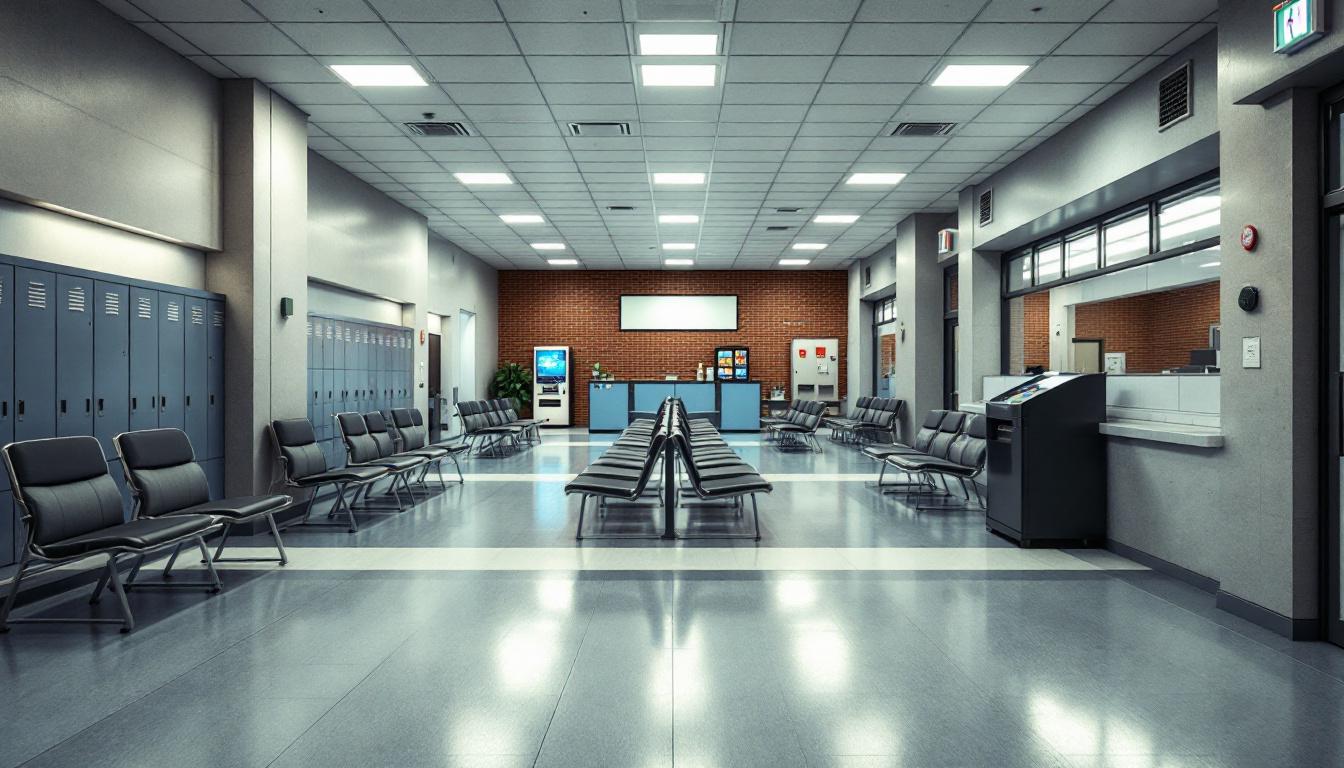
The concrete walls and steel doors of Cumberland County Jail create a structured environment where every aspect of daily life follows established routines. Inmates now find themselves adapting to a world where schedules dictate movement, and personal space is limited yet carefully managed. The facility typically operates on a regimented timeline that begins early each morning with headcounts and continues through meals, programming, and evening lockdown procedures.
Living accommodations generally consist of shared cells or dormitory-style housing units, where inmates learn to coexist in close quarters with limited personal belongings. Each housing area usually provides basic furnishings and storage space for approved personal items that may be purchased through the commissary system. Meals are typically served in designated dining areas at scheduled times, with inmates rotating through in groups based on their housing assignments. Although the physical environment may feel restrictive, many inmates gradually develop routines that help them maintain structure and purpose throughout their stay.
Furthermore, the facility regularly offers various programs and activities designed to provide meaningful engagement during incarceration. Work assignments within the jail often include kitchen duties, cleaning responsibilities, and maintenance tasks that help inmates contribute to daily operations while developing job skills. Recreation opportunities may include access to exercise areas, television viewing, and reading materials from the facility library. Visitation policies typically allow for scheduled visits with family members and friends, while phone privileges and correspondence help inmates maintain important connections with their support systems outside the facility walls.
Ready to Connect?
Start communicating with your loved one today
Search for an Inmate
